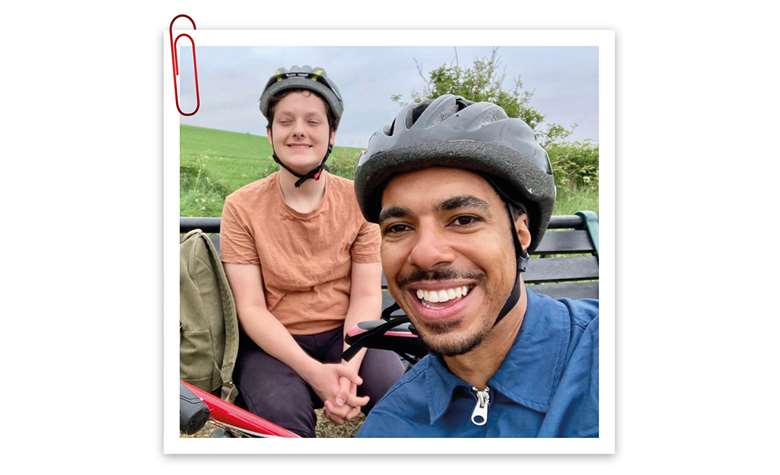How I Got Here: Scott Roberts, home support worker, Barnardo’s
Scott Roberts
Tuesday, October 25, 2022
Scott Roberts, home support worker, Barnardo’s Brighton and Hove Link Plus service on what he's learned from his roles in the charity sector to date.

Journalism to charity comms
I’ve worked in communications roles in the charity sector for more than eight years and I’ve found myself specialising in children’s charities.
As a former journalist, it’s not something I planned, but I guess that’s one of the great things about working in the charity sector – it’s so large and diverse that you can focus your career in certain areas without realising.
The most fulfilling part of being a journalist was being able to meet and interview people; learn about their experiences and provide a platform so they can have a voice. It was only through being a journalist that I learned about the vital role charities play in society.
Support work
Last March I decided to join Barnardo’s Brighton and Hove Link Plus service as a part-time home support worker. I was matched through the service with Albie, a young person who has severe hearing and visual impairment.
He has Brown-Vialetto-Van Laere syndrome which is a progressive neurological condition that affects his balance. For him to experience independence, he needs to receive continuous support with his mobility.
Albie finds doing tasks such as tying shoelaces or reading text very challenging, but thanks to Barnardo’s Link Plus, which provides short-break sessions to children and young people with disabilities, Albie has been able to benefit from weekly four-hour sessions where I help him participate in fun and exciting activities.
Through my work with Link Plus I’ve been able to gain a better understanding of how to support young people with disabilities and it’s also helped me to keep connected with the work of Barnardo’s at a service level.
Human skills
A lot of people still assume they need to have parental experience to work with young people. The reality is it’s far more important to possess universal human skills and to be able to relate and communicate effectively.
You don’t need to have a specific background to be a home support worker; just look back at your younger self and think about all the fun activities and opportunities you were able to benefit from.
It’s rewarding to help someone experience the activities that I have often taken for granted. I’ve been able to see Albie develop his confidence and stamina and together we’re able to go paddleboarding, cycling across the Sussex Downs or just spend time together hanging out playing Uno and taking Albie’s very well-behaved dog for a walk to the park.
Improving communication
When I first met Albie, I was concerned communication would be a real challenge. While he has a cochlear implant, he still finds it difficult to hear every part of a conversation. However, as our sessions progressed, the communication naturally improved.
Sign language isn’t something I have learned, but you would be surprised how much of a conversation can be covered by putting the emphasis on lip reading, body language, tone and focusing on essential parts of a sentence.
Albie’s helped improve my rather limited knowledge of science, physics and astronomy and I’m able to give him tips on how to develop his paddleboarding skills or just some advice about how to navigate a challenge.
My sessions with Albie help me to be a better communicator in my role at Barnardo’s.
TOP THREE CAREER TIPS
-
Be prepared to have fun! You need to be compassionate, caring and supportive, but remember the time spent with a young person is about them having meaningful and enjoyable experiences.
-
Always think on your feet. A young person might not feel like doing the activity you have planned, so be prepared to change things at short notice and evolve an idea, so it works for them.
-
Take ideas and advice from your colleagues. There often isn’t one ‘right’ way to do something and what can work for one young person may not work for another.




